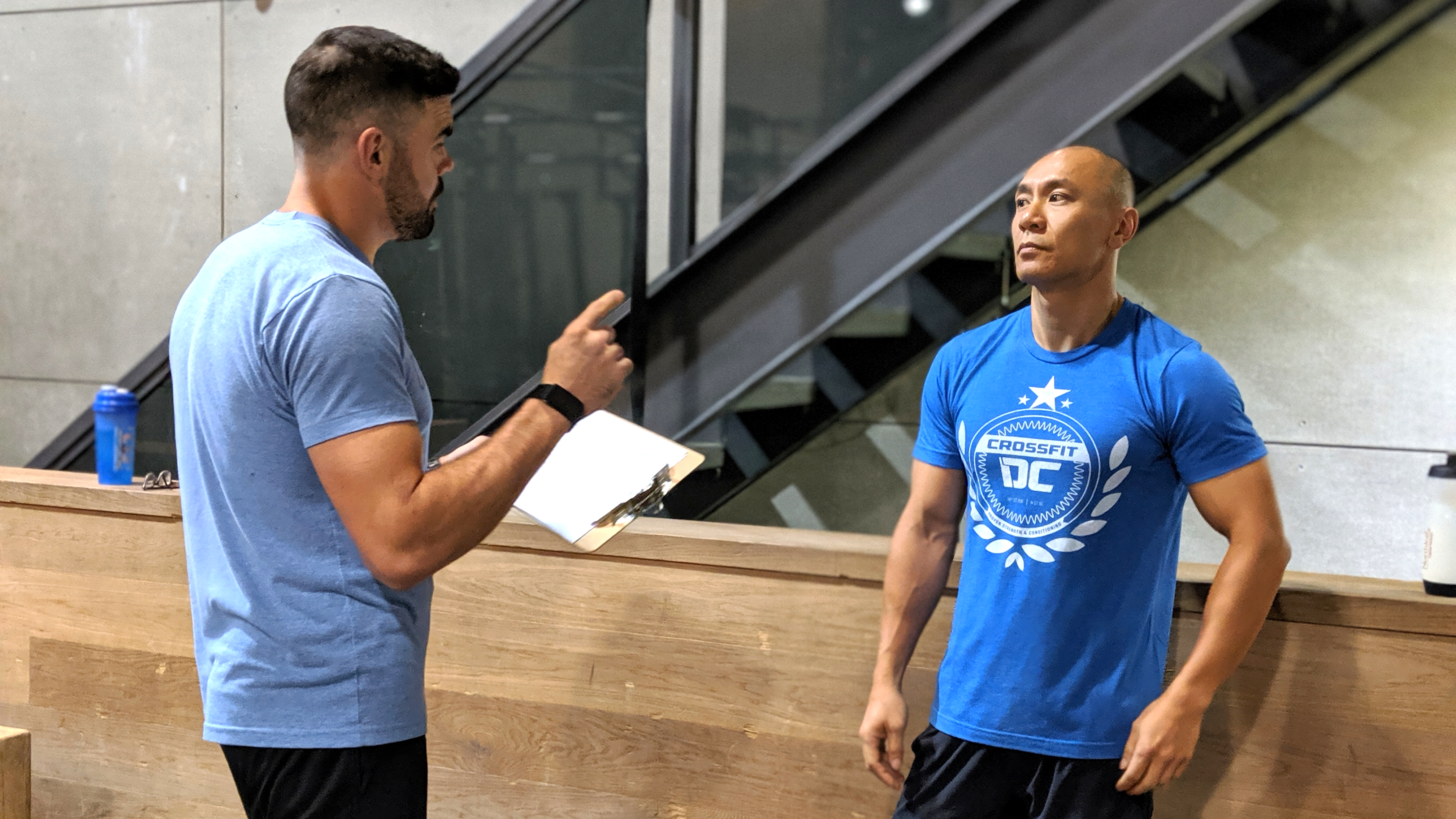
The Coach
Four days a week, I get up at 4.45 a.m. and ride my bike to a Crossfit gym at the corner of Avenue Road and Davenport in the heart of Toronto. Mondays, Tuesdays and Thursdays are non-negotiables. If nothing else gets me out of bed at this godly hour, coach DK does.
This series is not a praise of Crossfit. It may as well be about running, yoga, spinning, boxing, golf, climbing or pole-dancing — name your sport. If it’s challenging and pushes you out of your comfort zone, you will find that the lessons learned from working with a great coach are equally applicable to your life as an entrepreneur or entrepreneurial ecosystem builder.
Community
It’s usually dark around 5.29 when we all huddle together and go quiet as DK takes command of the gym. He checks in with how everyone is doing before walking us through workout of the day (WOD). For those of you who are not familiar with Crossfit, most sessions at Crossfit YKV consist of a warm-up, some type of lift and a Workout of the Day (WOD). DK will often share an anecdote or story that elicits what we will be working on that day. I love this ritual of starting every workout as a team; and I certainly love the ritual of a shared story to set the tone for what lies ahead. Thanks to DK’s anecdotes, I now know a lot about his preferred red meat, his wife (who I have never met) and the unexpected growth mechanism of a lobster (I’m ready for your Jeopardy!).
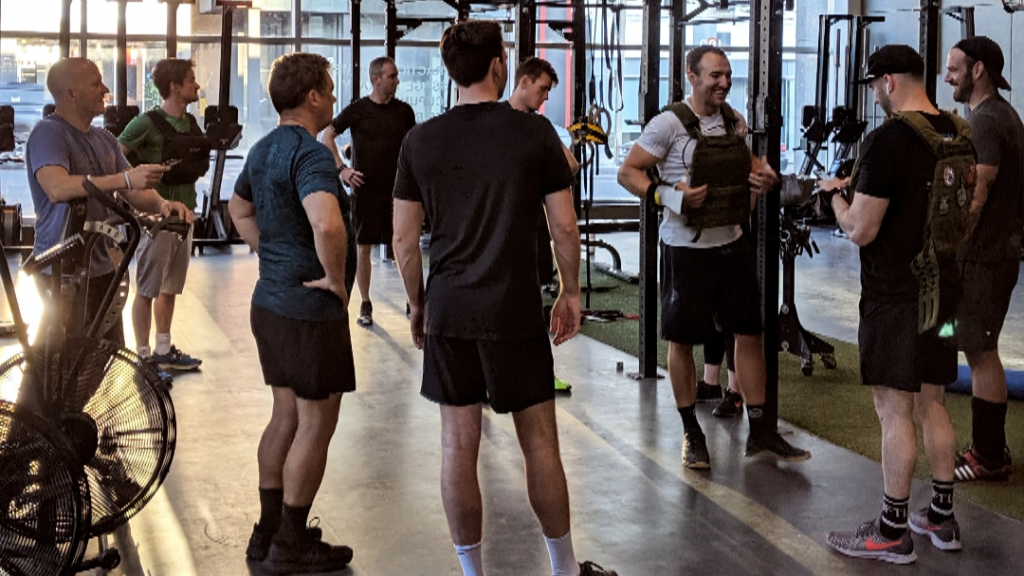
When advising purpose-driven entrepreneurs, I prefer working in a group setting to inspire the same sense of community. I want entrepreneurs to know their peers and get comfortable sharing their progress, concerns and lessons learned with each other. A program like Unreasonable Lab, CO.STARTERS or Lighthouse Labs RVA will come to an end after a week to three months, but the relationships and networks among founders persist. A sense of community and belonging is the foundation for deep trust, encouragement, advice, vulnerability, and growth. Entrepreneurs rarely succeed in isolation; as entrepreneurial ecosystem builders it is our key responsibility to build and nurture a community in which founders can thrive, grow and learn.
As ecosystem builders, in particular, we thrive thanks to a sense of community. Everytime the going gets tough, we cope better if we’re able to turn to our peers for support and a sense of purpose. That’s why we gather annually at the Kauffman Foundation’s EShip Summit, why we join peer networks like Startup Champions Network, and why I launched Social Venturers — to gather, train and strengthen a community of changemakers who share the same vision for a more just and equitable economy.
Mindset
Perhaps the most important and surprising lesson I learned through Crossfit is that of a healthy mindset. Have you ever seen a Crossfit athlete? At first sight, you might assume all they do is lift weights and chug protein shakes all day long. But some of the best known trainers and athletes invest as much time in training their minds as they do training their bodies (learn more in Chasing Excellence (podcast and book) by Ben Bergeron, coach to several finalists in the annual Crossfit Games).
Mindset: Pace yourself
At the beginning of each workout, DK walks us through what lies ahead which — as in entrepreneurship — is different for everyone. Based on our strengths, weaknesses, physiology, age, height, experience and medical history the same workout presents different challenges for each athlete. DK makes a point of talking to each of us about how to approach a certain skill or exercise. And almost every instruction ends with the words “Pace yourselves.”
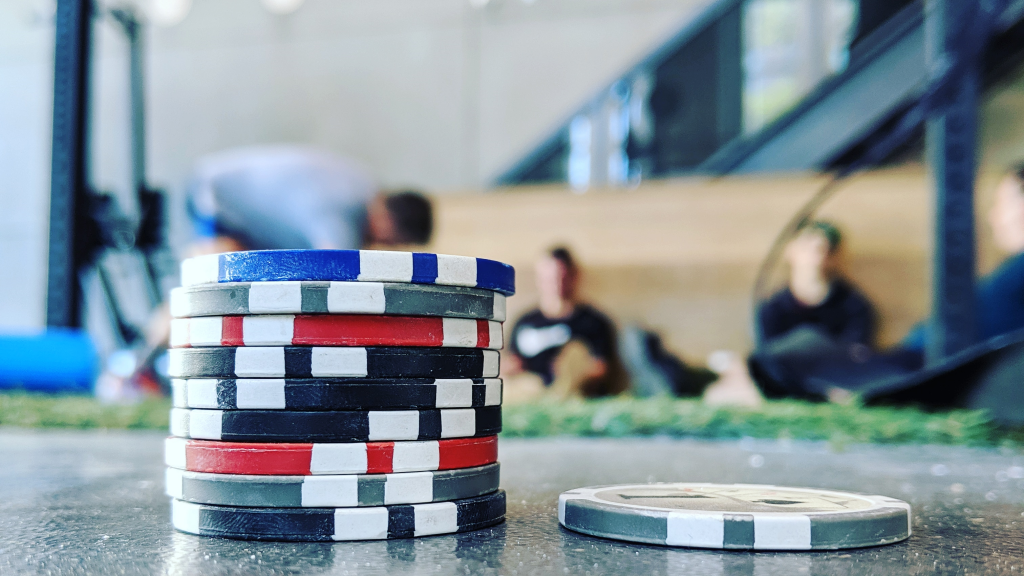
A common image of startup founders is that of pale guys in hoodies chugging coffee and pulling all-nighters to code and troubleshoot and build and sell. I can’t even begin to tell you how wrong this image is. Are there founders who think they can outperform the competition on 4 hours of sleep a night, with no social relationships, living off toast, coke and noodles? Absolutely! Are they the ones who successfully lead their team through strenuous times, balance payroll, win over investors and strike up new partnerships to see their company grow more robust? Have a guess. Entrepreneurship is not for the faint of heart and if you’re building a company not to flip, but to sustain, grow and make an impact, you better learn how to pace yourself.
Sprint or marathon? Investing in your local ecosystem means a multi-year if not multi-decade commitment to building relationships and continually advocating for the needs of founders. As an ecosystem builder you know that lasting change doesn’t come overnight. If you’re serious about changing the game for local entrepreneurs, you need to learn to pace yourself.
Mindset: Persistence
If you are staring at a workout that calls for 150 wall ball shots for time (lovingly named “Karen”), it is easy — and perfectly normal — for your eyes to pop out of your head, for your jaw to drop on the floor and for your mouth to run very, very dry. WOD Well describes a wall ball shot as follows:
”The wall ball shot is a cardiovascular endurance movement that, while simplistic in mechanics, is devastating to your lungs, legs, shoulders, and oftentimes ego.“
If that doesn’t sound like fun…
Many a morning I wanted to sneak out of the gym convinced I wasn’t physically capable of a WOD. More than once I nervously scanned the gym for potential accomplices in my escape only to be met with faces of sheer determination.
The first time I attempted Karen, all I could hear myself think was “This is impossible!” I failed the workout (more on failure below friends! We’re just warming up!).
The second time, I walked up to DK, shuffled my feet on the gym floor and meekly asked him how the hell everyone else was doing this when I couldn’t get past 60. Unphased, DK said “Don’t fret the entire thing. Focus on ten. Then another ten. Then the next. All you have to do is ten wall balls. And then ten more.” The penny dropped so loud I was convinced the whole gym heard it.
Similar to pacing yourself, being persistent is key as an entrepreneur:
Trying to learn from your end user through customer discovery? Be persistent.
Raising funds? Be persistent.
Convince the first ten customers to pay actual REAL money for your product or service? Be persistent.
As ecosystem builders, we constantly strive to improve the current system so that more, and more diverse founders can succeed. Systemic change requires a big vision and tenacity. Systems change slowly and since ecosystem building is a team effort, much of the progress depends not only on our work but that of all the other actors. To overcome roadblocks, shortages, dispute and ignorance, we have no choice but to be persistent and relentlessly pursue our vision of the greater good.
Mindset: Failure
It was 6.25 a.m. I had one minute left on the clock and 12 more pull-ups to complete. From the corner of my eye, I saw the other athletes scattered across the floor in puddles of sweat breathing hard. My arms were on fire and I was trying with all might to pull myself up, but I had nothing left. “This sucks!” I muttered under my breath. The timer went off. I had blown it. Failed. Sometimes you just don’t finish. Sometimes you can’t get a lift right. Or climb up a rope. Or hit a target. You gave it your all. You tried hard. You watch everyone else cross the finish line.
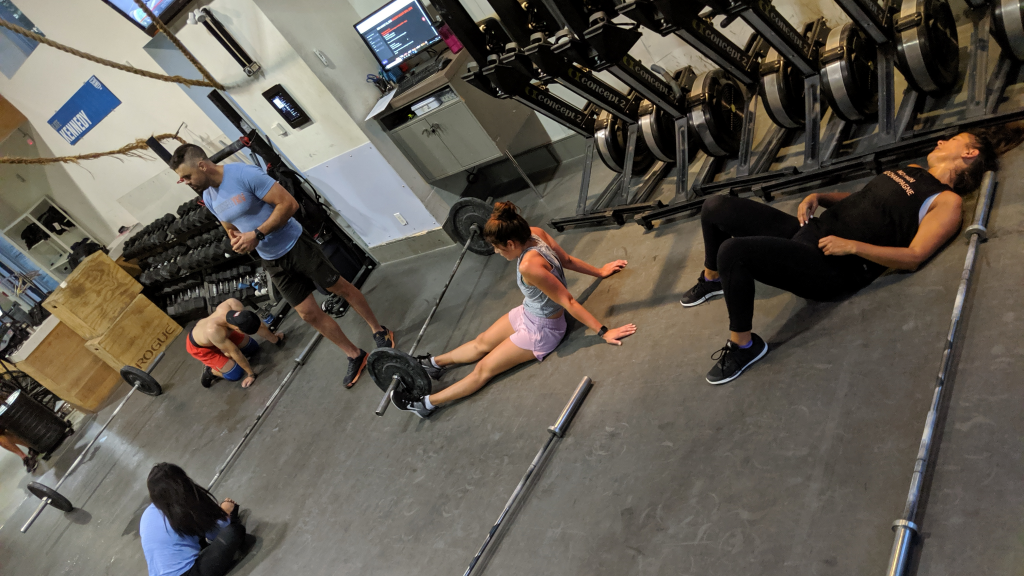
When Katrin-Tanja Davidsdottir failed the rope climb in 2014 missing her qualification for the Crossfit Games, she was devastated. Following the 2014 Games, she practiced rope climbs over and over and over again. Then she became the Fittest Woman on Earth two years in a row.
In entrepreneurship, you fail all the time. It’s part of the job description. The Lean Startup is built on the premise of failure: Fail early and often so you can learn from what doesn’t work and move toward what does work. It is a very basic process of elimination.
In a nascent field like ecosystem building, we are often forging a path as we move into unknown terrain. We are destined to misstep, forced to backtrack our steps and try a different way. Failure is part of the experience because we still have SO MUCH to learn. Fail, my fellow ecosystem builders and then please please PLEASE share that failure so we can all learn from each others’ experiences!
The Coach
A good coach
- Leads by example
- Treats the ones s/he coaches with the respect that s/he expects for themselves, and
- Is invested in their progress, learning and achievements.
The Coach: Leading by example
In Crossfit, there are four levels of certification for coaches; entry level 1, a more advanced level 2, and so on. At the time of writing DK is one of 46 Level 3 coaches in all of Canada. ALL. OF. CANADA! He didn’t stop at level 2 — and he was a bloody good coach then — instead he strives for excellence in his coaching, and at least for me, I am inspired to bring MY best self to the gym.
In advising purpose-driven entrepreneurs, I’ve always felt like I wanted to be the most informed and up-to-date I could be on the latest research, tools and insights. How else could I be sure to provide the founders I worked with the best and most informed advice? I make time each year to attend conferences and invest in my professional development to make sure I know everything there is to know in the world of the lean startup, social entrepreneurship and ecosystem building.
One of our key challenges as ecosystem builders is to convince others in our community that collaboration brings greater good than competition. To do that, you must walk the talk. Share your knowledge, be self-critical, convene unlikely allies, go out of your way to invite people to the table who are not like you. Lead by example and those who share your vision will follow.
The Coach: Respect
It doesn’t hurt that DK is a likeable dude with a good sense of humor. But what I appreciate most is his healthy mix of professionalism, expertise and respectful behavior towards athletes. He remembers his athletes’ names, he doesn’t check his phone while we work out. In return, we show up on time, we listen when he speaks and we follow his instructions without complaining.
This lesson is not unique to Crossfit, entrepreneurship or ecosystem building. Respect the person who sits across from you, be present and listen.
The Coach: Pushing for results
At every workout, DK will review our past performance of a specific lift, skill or WOD and dictate what we should shoot for in this workout. He takes into account our level of fitness, past injuries and whether someone just got back from vacation (ehem, that would be mostly me!). He will often suggest a weight or skill that I don’t think I am capable of but I have given up arguing with him because more often than not, he has proven a better judge of my abilities than myself.
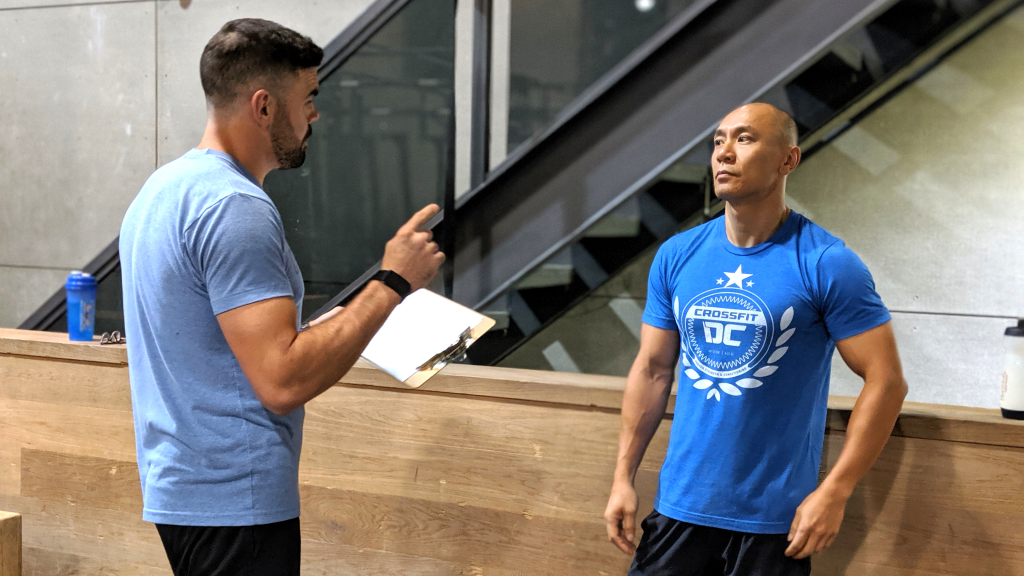
Even when working with a group of entrepreneurs (see part 1: Community), I always make sure to check in with founders one-on-one. I love playing the role of sounding board, loving critic, reality check and hypewoman. Founders get a lot of feedback from all sides. All the time. Investors think they know what’s best for the company, so do mentors, neighbors, cousins and spouses. And more often than not, they are offended if their advice is ignored. As an advisor to purpose-driven entrepreneurs, my favorite part is setting ambitious goals with entrepreneurs and holding them accountable to their progress. It is key for entrepreneurs to have a results-driven strategy in place that is aligned with their values and bigger vision; I help them stay true to that path and have heard more than one founder say “I asked myself what Anika would say and I knew what to do.”
As ecosystem builders in particular, we often don’t celebrate our successes. We are so focused on the big vision (see part 2.2 Mindset: Persistence) that we are already chasing the next milestone as soon as we pass the previous one. It is easy to preoccupy ourselves with the challenges ahead that we simply forget to enjoy the small victories along the way. A big goal of mine in launching Social Venturers was to celebrate the work and impact of ecosystem builders for social change to remind each other that what we do matters.
Make it count
Whether you are an entrepreneur, ecosystem builder or actual athletic coach, if you dedicate your career to improving the lives of others, knowing your core values and passing them on is your greatest gift to the world.
Be sure to build or be part of a supportive community.
Shift your mindset to one of pace, persistence and acceptance of failure.
Lead by example, respect those you work with and become invested in their achievements. You will inspire those around you to bring their best selves to the gym, their companies and the entrepreneurial ecosystem they’re part of.
Great analog – enjoyed the read!